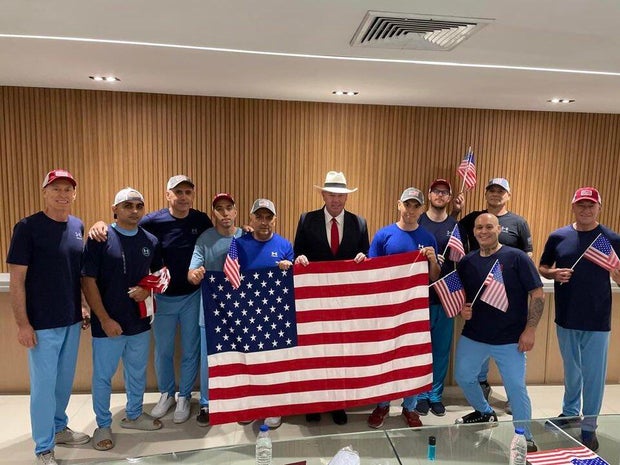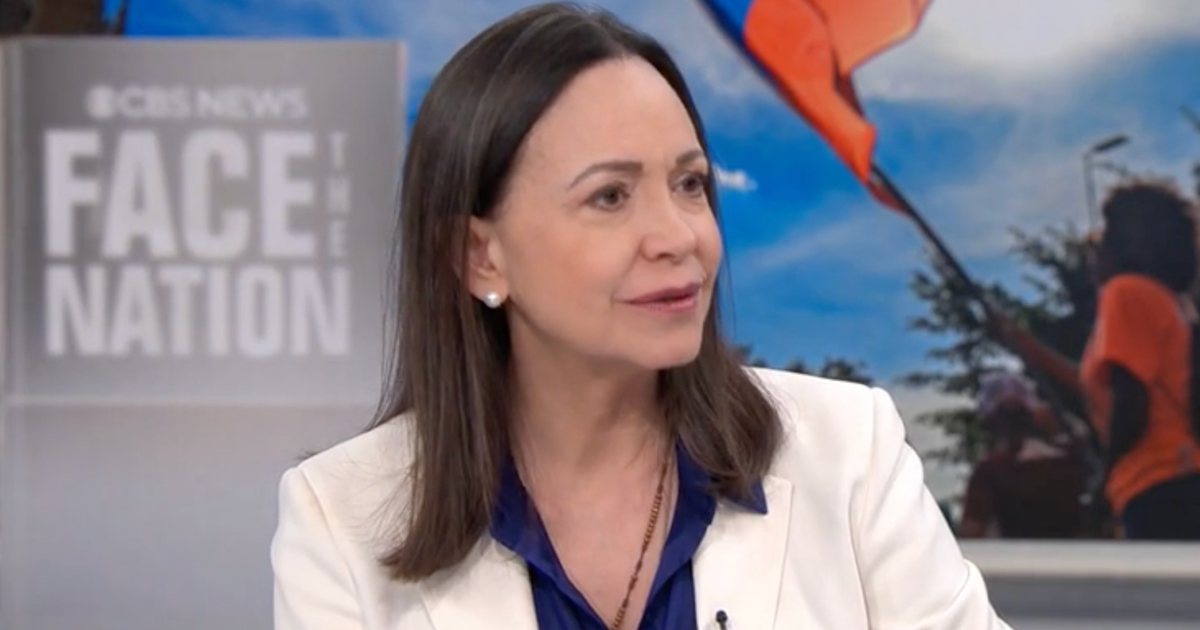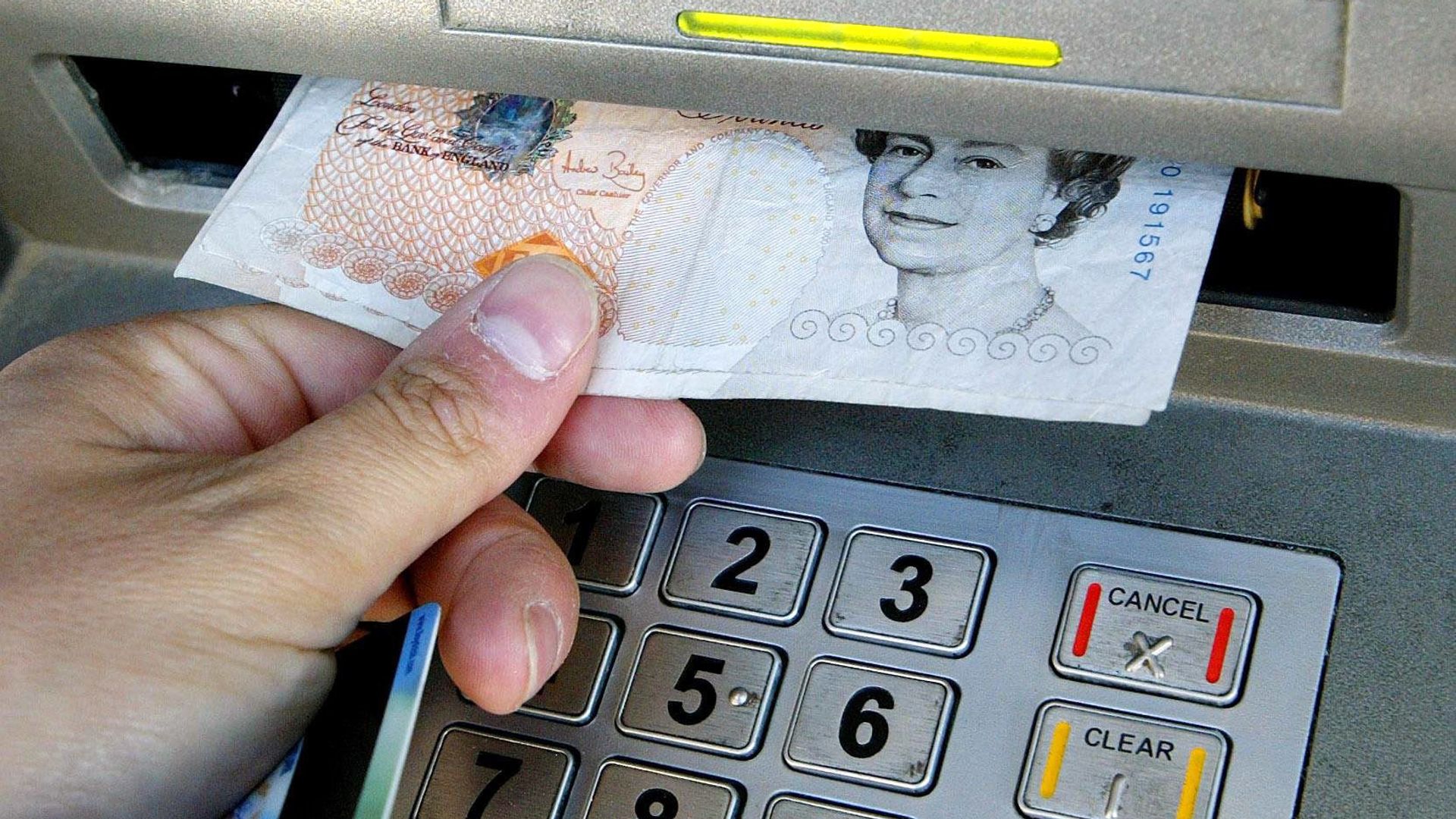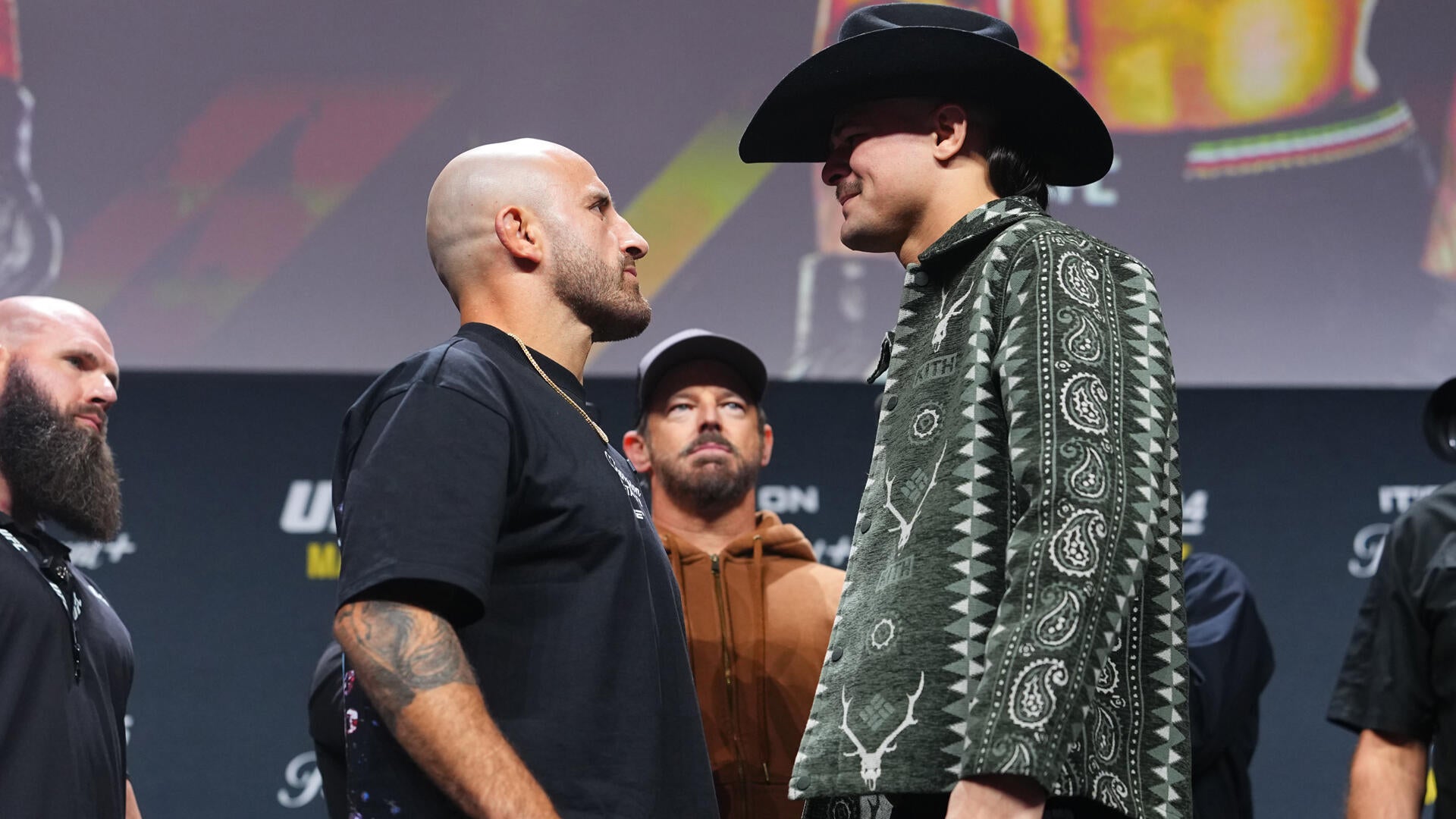
Washington — Ten Americans are en route to the U.S. after a prisoner swap involving the U.S., El Salvador and Venezuela, Secretary of State Marco Rubio said Friday.
The Americans were freed from Venezuela in exchange for El Salvador returning 252 Venezuelans who were deported from the U.S. to a notorious Salvadoran prison earlier this year, senior administration officials said, alleging the released Venezuelans were members of the gang Tren de Aragua.
A former Navy SEAL, Wilbert Joseph Castaneda, is among the Americans released, three sources told CBS News. Castaneda was detained in Venezuela last year while on personal travel.
"We have prayed for this day for almost a year. My brother is an innocent man who was used as a political pawn by the Maduro regime," Castaneda's family said in a statement. The family said he had suffered several traumatic brain injuries during his 18 years in the Navy that "impaired his judgment and risk mitigation" and "led him to make a bad decision to travel to Venezuela."
The U.S. has warned Americans against traveling to Venezuela or near its borders, citing the risks of wrongful detention.
"Until today, more Americans were wrongfully held in Venezuela than any other country in the world," Rubio said in a statement that credited "President Trump's leadership and commitment to the American people."
"Every wrongfully detained American in Venezuela is now free and back in our homeland," Rubio added.
The U.S. Embassy in Venezuela posted a photo of the freed Americans with U.S. diplomat John McNamara.
As part of the deal, the Venezuelan government also released dozens of people who were described as Venezuelan political prisoners and detainees, a senior administration official said.
Salvadoran President Nayib Bukele wrote on X that his country "handed over all the Venezuelan nationals detained in our country, accused of being part of the criminal organization Tren de Aragua," in exchange for "a considerable number of Venezuelan political prisoners … as well as all the American citizens it was holding as hostages."
The Trump administration deported more than 200 male Venezuelan citizens to El Salvador in March, accusing them of being part of the transnational gang Tren De Aragua. Mr. Trump invoked an 18th-century wartime law, the Alien Enemies Act, to order officials to quickly deport many of the Venezuelan migrants, deeming them a threat to the U.S. The Salvadoran government has held many of the detainees in a supermax prison called the Terrorism Confinement Center, or CECOT.
In May, the Supreme Court extended a pause on deportations of Venezuelan migrants detained in northern Texas while they challenge their removals under the wartime law.
Some of the families of the Venezuelan deportees have denied that they have gang connections, and a "60 Minutes" investigation in April found that most of the detainees did not have criminal convictions.
Officials describe "down-to-the-wire" deal
A senior administration official said the deal with El Salvador and Venezuela was "essentially down to the wire." The flight carrying the detainees took off from Venezuela at around 3:40 p.m. ET and left Venezuelan airspace at around 3:55 p.m. The official alleged the Venezuelan government took "one last stand" by briefly delaying Friday's swap as a "power flex."
The prisoner swap was arranged as Venezuela faces intense U.S. sanctions that limit the country's once-lucrative oil industry, and came one day after the Trump administration imposed sanctions on six leaders and affiliates of Tren de Aragua. A senior administration official said Friday's deal was "humanitarian in nature" and there was "not a discussion of sanctions whatsoever."
Rubio credited Bukele — who has cast himself as a key ally in Mr. Trump's deportation push — for the swap. Bukele posted on X that his government initially proposed the swap to Venezuela's government in April.












-3.png)



